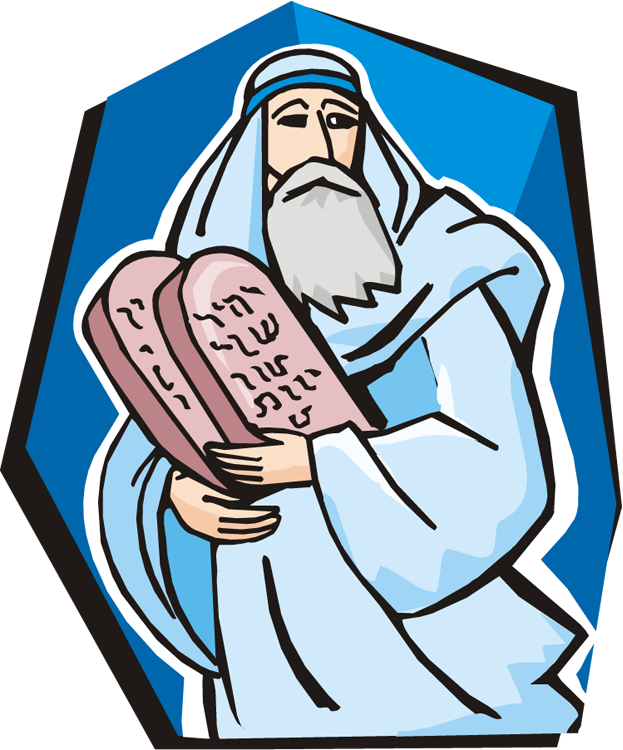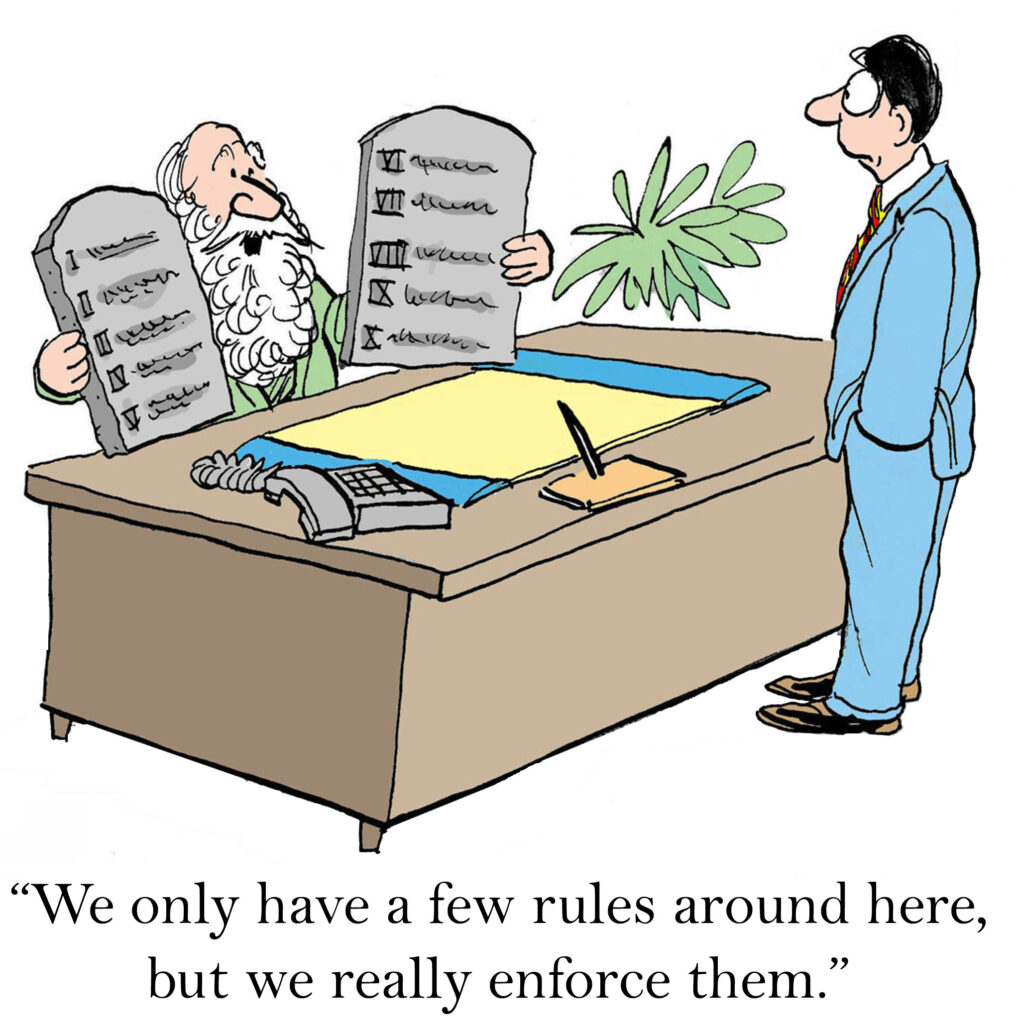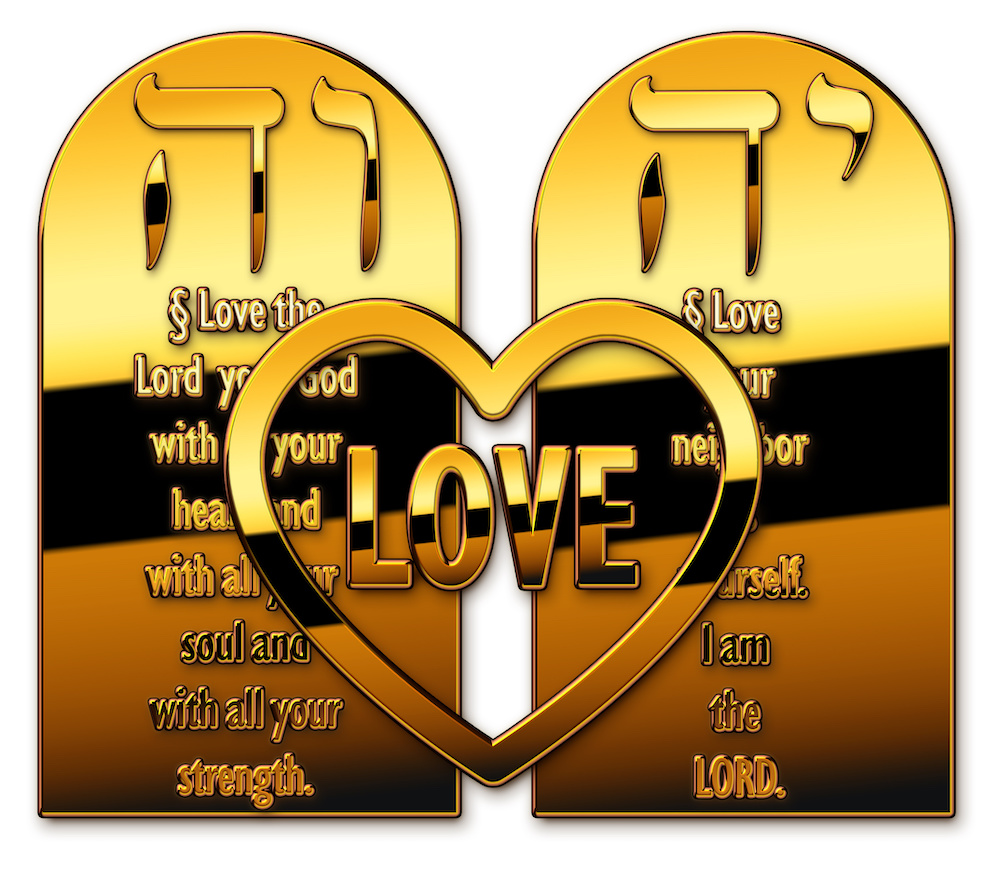This is the third in a series of videos containing the subject matter of Nathan Lawrence’s upcoming new book entitled, “The Gospels Decoded—Prophetic Pictures of End Time Events”. In this book, we will discover who we are as a people and what the future holds for us as we look at Yeshua’s ministry and teachings through the lens of the third level of biblical interpretation. You have never heard anything like this before. This is not hyperbole. I invite you to check it out for yourself.
Category Archives: Torah-law
The Truth—Reformation 2.0
I, Nathan Lawrence, have read and helped to edit the following book and have advised my good friend and brother in the faith, Luke Abaffy, while he was writing it. By his own admission, Luke has relied heavily on my teachings in the writing of his book.
But, more importantly, as I was reading and editing Luke’s book, it became clear to me that YHVH has given him much fresh revelation and new insights, which I have found to be unique, refreshing and inspiring in our attempt to understand and then to present a Torah-based view of the Scriptures to those around us. Honestly, in my more than 50 years of studying the Torah and attempting to living a Torah-compliant lifestyle, I have not come across another apologetic that addresses Christianity’s anti-Torah views as well as this book does. Luke’s book is compelling and spiritually energizing. Thus, I am convinced that Luke is a Spirit-led instrument in the hands of the Almighty YHVH Elohim to bring the Truth of Torah in light of Christianity’s apathy toward it to a whole new level and a new generation of believers. I have never said this about another book on this subject.
Therefore, please purchase his book, read it and assimilate the concepts found therein and then share it with others who are looking to help bring the lost sheep of Israel back to the Truth of the Bible.
This promotion is totally unsolicited by anyone, and Nathan Lawrence and Hoshana Rabbah Biblical Resources gains no financial or other benefit from it other than knowing that this book will help to advance the kingdom of Elohim for the glory of Yeshua our Messiah. —Nathan Lawrence
Presenting the new E book and paperback book by Luke Abaffy (creator of The Way Documentary) entitled The Truth-Reformation 2.0. This new books is…
A lighthearted, hard-hitting apologetics book from the creators of THE WAY documentary. Inside you’ll find:
- The biblical case for keeping (even more of) God’s law
- 25 contradictions in popular theology solved
- Illustrations that visually contrast true and false doctrines
- Clear language you can use to articulate your beliefs
Read THE TRUTH on your digital devices! You’ll receive an email with a choice of ebook file formats to download once your order is processed & completed. Learn more about THE TRUTH in the description below.
For 2,000 years, Christians taught that trying to keep the laws of the Old Testament is at worst, a blasphemous attempt to earn one’s salvation and at best, a misguided pursuit meant for Jewish people alone. Thanks to our fortunate involvement in the New Covenant, we don’t need to concern ourselves with now-symbolic food laws or the shadow-picture feasts of Leviticus 23 … or do we?.What if those laws are essential to the New Covenant and tied to the very purpose of life? What if they reveal more of Jesus’s example for us to follow? And what if the law of God is a perfect reflection of who He is, allowing us to know Him in a deeper way than ever before?
The Truth: Reformation 2.0 is an apologetics resource that reveals harmful contradictions in popular Christian theology.
Description
Inside you’ll find:
- The biblical case for keeping (even more of) God’s law
- Practical insights into what laws can be kept today and why
- 25 contradictions in popular theology solved
- Venn Diagrams and illustrations that visually contrast true and false doctrines
- Clear language and a simple framework you can use to articulate your beliefs
The Truth: Reformation 2.0 provides clear, easy-to-remember answers to questions and objections like:
- But didn’t Jesus fulfill the law so we don’t have to?
- Why are you trying to be Jewish?
- You’re misdirecting your energy, focusing on minutiae from the Old Testament instead of just loving people!
- But doesn’t God love us unconditionally … no matter what we do?
- But didn’t Jesus break the Sabbath?
- Have you read Galatians?!
- Aren’t we only responsible to keep the laws that are repeated in the New Testament?
- But didn’t Jesus declare all foods clean?
- You think it’s a good idea to stone your children!?
- But God can sanctify something that used to be pagan to bring Himself glory!
- But God’s law changes all the time!
- Isn’t the point of the New Covenant that we don’t need to keep the law anymore?!
- Didn’t Jesus give us new, more spiritual commands instead of the old stuff from the law of Moses?
- Aren’t we, as the church, still Gentiles?
- Shouldn’t I just decide for myself and be “fully convinced in my own mind?”
To order the E book or paperback book, click the link below:
Deuteronomy 33 V’Zot haBerachah—Torah’s Final Word to Us
In this video, Nathan discusses the two cloven tongues of fire aspects YHVH’s Torah, how this Torah portion proves that Yeshua is the one who gave the Torah-law at Mount Sinai and how it also proves that the Torah is for Christians today, and what it means to be the priest, prophet and king in your own home. We also learn what the Bible has to say about retirement—or rather, what it does not say on this subject, and what the saints are to be doing until the day of their death. Please enjoy and be edified.
Deuteronomy 32 HaAzinu—Song of Moses’ Prophetic Implications
Nitzavim Deuteronomy 29—The Saints R Israelites, Not Gentiles!
From Genesis to Revelation, the Bible is full of prophecies about the people of YHVH—i.e., Israel. He revealed his Truth to Israel, he made covenants with Israel that revealed His path to physical blessings and spiritual redemption or salvation through the promised Israelite Messiah. Those who are outside of Israel (i.e., the Gentiles) have no such blessings or covenants, for they are without God and without hope (Eph 2:12). The Bible is clear. ALL those who are IN Yeshua the Messiah, that is, who have a spiritual relationship with Him, are now the offspring of Abraham and are no longer are Gentiles (Gal 3:28–29). The fact is that Yeshua is coming back for one bride—an Israelite bride, NOT two brides—a Jewish bride and a Gentile bride. He is not a polygamist. Furthermore, there is no Gentile gate in the New Jerusalem (Rev 21:12)—Gentiles WILL NOT be there—only redeemed Israelites who are in Messiah and part of the nation of Israel and within the covenant promises that YHVH made to of Israel. Learn about this and more in this video.
Deuteronomy 26 Ki Tavo—26 Blessings for Torah-Obedience
Good old YouTube is at it again! I’m in their bad boy doghouse because of my video exposing the Satanic Babylon the Great New World Order in light of end Bible prophecy as it pertains to my belief that the COVID injection is psychologically preparing people to take the mark of beast. They are accusing me of violating their medical misinformation policy. (These satanists and their Antichrist big-pharma overlords are determined to kill us off! It’s no wonder, for Yeshua declared that Satan comes to kill, steal and destroy, and Peter informs us that the devil goes about as a roaring lion seeking whom he may devour.)
By banning videos like mine, the people of YouTube have blood on their hands, and they will answer to YHVH Elohim for their murderous actions as they squelch the truth about the COVID injections.
Interestingly, in their COVID information below, they promise to ban anyone who recommends drugs like Ivermectin and Hydroxychloroquine—drugs that have proven to help in curing COVID in many cases. Can anyone see how these people are under the thumb of the sorcerers of big pharma (read Rev 18:23)? I could go and on, but I’ll stop. I know that I’m preaching to the choir.
Anyway, here’s the link to the video on this week’s Torah portion: https://rumble.com/v1jkcmh-deuteronomy-26-ki-tavo26-blessings-of-torah-obedience.html
If you’re curious about YouTubes policy and have the stomach to read it, this is what they sent me:
YouTube doesn’t allow content that poses a serious risk of egregious harm by spreading medical misinformation about currently administered vaccines that are approved and confirmed to be safe and effective by local health authorities and by the World Health Organization (WHO).
If I keep violating YouTube’s policies, they threaten to terminate my channel forever.
YouTube goes on to say:
COVID-19 medical misinformation policy
The safety of our creators, viewers, and partners is our highest priority. We look to each of you to help us protect this unique and vibrant community. It’s important you understand our Community Guidelines, and the role they play in our shared responsibility to keep YouTube safe. Take the time to carefully read the policy below. You can also check out this page for a full list of our guidelines.
YouTube doesn’t allow content about COVID-19 that poses a serious risk of egregious harm.
YouTube doesn’t allow content that spreads medical misinformation that contradicts local health authorities’ (LHA) or the World Health Organization’s (WHO) medical information about COVID-19. This is limited to content that contradicts WHO or local health authorities’ guidance on:
- Treatment
- Prevention
- Diagnosis
- Transmission
- The existence of COVID-19
Note: YouTube’s policies on COVID-19 are subject to change in response to changes to global or local health authorities’ guidance on the virus. There may be a delay between new LHA/WHO guidance and policy updates given the frequency with which this guidance changes, and our policies may not cover all LHA/WHO guidance related to COVID-19.
Our COVID-19 policies were first published on May 20, 2020.
What this policy means for you
If you’re posting content
Don’t post content on YouTube if it includes any of the following:
Treatment misinformation:
- Content that encourages the use of home remedies, prayer, or rituals in place of medical treatment such as consulting a doctor or going to the hospital
- Content that claims that there’s a guaranteed cure for COVID-19
- Content that recommends use of Ivermectin or Hydroxychloroquine for the treatment of COVID-19
- Claims that Hydroxychloroquine is an effective treatment for COVID-19
- Categorical claims that Ivermectin is an effective treatment for COVID-19
- Claims that Ivermectin and Hydroxychloroquine are safe to use in the prevention of COVID-19
- Other content that discourages people from consulting a medical professional or seeking medical advice
Prevention misinformation: Content that promotes prevention methods that contradict local health authorities or WHO.
- Claims that there is a guaranteed prevention method for COVID-19
- Claims that any medication or vaccination is a guaranteed prevention method for COVID-19
- Content that recommends use of Ivermectin or Hydroxychloroquine for the prevention of COVID-19
- Claims that Ivermectin and Hydroxychloroquine are safe to use in the prevention of COVID-19
- Claims about COVID-19 vaccinations that contradict expert consensus from local health authorities or WHO
- Claims that an approved COVID-19 vaccine will cause death, infertility, miscarriage, autism, or contraction of other infectious diseases
- Claims that an approved COVID-19 vaccine will contain substances that are not on the vaccine ingredient list, such as biological matter from fetuses (e.g. fetal tissue, fetal cell lines) or animal products
- Claims that an approved COVID-19 vaccine will contain substances or devices meant to track or identify those who’ve received it
- Claims that COVID-19 vaccines will make people who receive them magnetic
- Claims that an approved COVID-19 vaccine will alter a person’s genetic makeup
- Claims that COVID-19 vaccines do not reduce risk of serious illness or death
- Claims that any vaccine causes contraction of COVID-19
- Claims that a specific population will be required (by any entity except for a government) to take part in vaccine trials or receive the vaccine first
- Content that promotes the use of unapproved or homemade COVID-19 vaccines
- Instructions to counterfeit vaccine certificates, or offers of sale for such documents
Diagnostic misinformation: Content that promotes diagnostic information that contradicts local health authorities or WHO.
- Claims that approved COVID-19 tests are dangerous or cause negative physical health effects
- Claims that approved COVID-19 tests cannot diagnose COVID-19
Transmission misinformation: Content that promotes transmission information that contradicts local health authorities or WHO.
- Content that claims that COVID-19 is not caused by a viral infection
- Content that claims COVID-19 is not contagious
- Content that claims that COVID-19 cannot spread in certain climates or geographies
- Content that claims that any group or individual has immunity to the virus or cannot transmit the virus
Content that denies the existence of COVID-19:
- Denial that COVID-19 exists
- Claims that people have not died or gotten sick from COVID-19
- Claims that the death rate of COVID-19 is equal to or less than that of the common cold or seasonal flu
- Claims that COVID-19 is equal to or less transmissible than the common cold or seasonal flu
- Claims that the symptoms of COVID-19 are never severe
This policy applies to videos, video descriptions, comments, live streams, and any other YouTube product or feature. Keep in mind that this isn’t a complete list. Please note these policies also apply to external links in your content. This can include clickable URLs, verbally directing users to other sites in video, as well as other forms.
Examples
Here are some examples of content that’s not allowed on YouTube:
- Denial that COVID-19 exists
- Claims that people have not died from COVID-19
- Claims that any vaccine is a guaranteed prevention method for COVID-19
- Claims that a specific treatment or medicine is a guaranteed cure for COVID-19
- Claims that hydroxychloroquine saves people from COVID-19
- Promotion of MMS (Miracle Mineral Solution) for the treatment of COVID-19
- Claims that certain people have immunity to COVID-19 due to their race or nationality
- Encouraging taking home remedies instead of getting medical treatment when sick
- Discouraging people from consulting a medical professional if they’re sick
- Content that claims that holding your breath can be used as a diagnostic test for COVID-19
- Videos alleging that if you avoid Asian food, you won’t get the coronavirus
- Videos alleging that setting off fireworks can clean the air of the virus and will prevent the spread of the virus
- Claims that COVID-19 is caused by radiation from 5G networks
- Videos alleging that the COVID-19 test is the cause of the virus
- Claims that countries with hot climates will not experience the spread of the virus
- Claims that COVID-19 vaccines kill people who receive them
- Claims that COVID-19 vaccines are a means of population reduction
- Videos claiming that COVID-19 vaccines contain fetal tissue
- Claims that the flu vaccine causes contraction of COVID-19
- Claims that the flu is more contagious than COVID-19
- Claims that COVID-19 vaccines cause contraction of other infectious diseases or makes people more vulnerable to contraction of other infectious diseases
- Claims that COVID-19 vaccines contain a microchip or tracking device
- Claims that achieving herd immunity through natural infection is safer than vaccinating the population
- Claims that COVID-19 never causes serious symptoms or hospitalization
- Claims that the death rate from the seasonal flu is higher than the death rate of COVID-19
- Claims that people are immune to the virus based on their race
- Claims that children cannot or do not contract COVID-19
- Claims that there have not been cases or deaths in countries where cases or deaths have been confirmed by local health authorities or the WHO
Educational, documentary, scientific or artistic content
We may allow content that violates the misinformation policies noted on this page if that content includes additional context in the video, audio, title, or description. This is not a pass to promote misinformation. Additional context may include countervailing views from local health authorities or medical experts. We may also make exceptions if the purpose of the content is to condemn, dispute, or satirize misinformation that violates our policies. We may also make exceptions for content showing an open public forum, like a protest or public hearing, provided the content does not aim to promote misinformation that violates our policies.
What happens if content violates this policy
If your content violates this policy, we’ll remove the content and send you an email to let you know. If this is your first time violating our Community Guidelines, you’ll likely get a warning with no penalty to your channel. If it’s not, we may issue a strike against your channel. If you get 3 strikes within 90 days, your channel will be terminated. You can learn more about our strikes system here.
We may terminate your channel or account for repeated violations of the Community Guidelines or Terms of Service. We may also terminate your channel or account after a single case of severe abuse, or when the channel is dedicated to a policy violation. You can learn more about channel or account terminations here.
The 32 Blessings and Benefits of Obeying YHVH’s Torah-Law

The Scriptures reveal that the Torah is much more than a list of dos and don’ts as many people have been led to believe, and is therefore, in their mind, a negative thing. Deuteronomy 4:6 says that the Torah is our wisdom and understanding before the nations of the world. In Deuteronomy 11:8, we learn that the Torah makes us strong. The word strong in Hebrew is chazaq meaning “to be strong, grow strong, to prevail, to be firm, be caught fast, be secure, to grow stout, grow rigid, to restore to strength, give strength, sustain, encourage, make bold, encourage, to repair or to withstand.” This sounds like a good thing!

Sadly, most Christians have been told again and again ad infinitum and ad nauseam that the law of Moses or God’s Torah-law is against us, that we are not under it, that it was nailed to the cross or done away with. Nothing could be further from the truth as we shall see below.
Contrary to what most people have been told, YHVH’s Torah is not against man; rather, it might be said that God’s (Elohim’s) Torah-law itself is neutral; neither positive nor negative. In reality, it is like a mirror that simply reflects the image portrayed in it. Torah reacts according to human action. Those who obey it are blessed and those who disobey it are cursed. For example, just as the law of gravity is also neutral. Even as it benefits humans by keeping them from floating off to a certain death in outer space, so the same law is against us should we choose to jump off a bridge, a high building or a cliff; the results are death. Again, Elohim’s Torah-law, like his law of gravity is neutral. It can be for or against us depending on whether we acknowledge, respect and then obey it or not. To ignore it is called sin and results in death, for the wages of sin (i.e., the violation of Torah; 1 John 3:4) is death (Ezek 18:4; Rom 6:23).
The following lists delineate the few aspects of the YHVH Elohim’s Torah-law that are “against” us (that is, against sinners), and them the many aspects of YHVH’s Torah-law that are for man’s blessing and benefit.

On the negative side, when we disobey the Torah…

1) The Torah has the capacity to stir up sin in an individual. This is not the fault of YHVH’s instructions in righteousness or Torah-law, but our fault because we have chosen to go against YHVH’s life-giving commandments. A healthy person thrives in an environment deadly to someone who is ill; likewise, the Torah is beneficial to a righteous person who is living by it and in loving obedience to Yeshua as guided by his Set-Apart or Holy Spirit. Other hand, the Torah is an instrument of death to those who are controlled by their sinful nature.
2) YHVH’s Torah-law acts as a guide to man’s inner spirit or conscience and produces guilt feelings and shame when we violate it, that is, when we sin. The remedy for the guilt and shame that sin brings on is once-and-for-all trust in Yeshua the Messiah’s final atonement for sin (Rom 3:21–26), followed by ongoing confession of and repentance from sins (1 John 1:9).
3) The Torah also provides a framework of justice by which Elohim, the Just Judge of the universe, will judge the actions of men to determine both their level of punishment for its violation and their level of reward for obedience to it.
4) The Torah sets out righteous standards for the sinner to follow, and it points out the fact that they have sinned and how far they have fallen short of the glory of YHVH (Rom 3:23) and hence their need for a Savior or Redeemer. The Torah actually leads us to Yeshua as Paul points out in his epistle to the Galatians (Gal 3:25).
5) The Torah delineates the curses that automatically come as a cause-and-effect judgment against a person or a group of people (e.g., a family, nation or the whole earth) when they fail to live up to its righteous standards (Deut 28:15–68; Ps 119:21) and, instead, give into the negative influences of their fallen sin nature or the influences of the world and the devil. The law of gravity, like YHVH’s Torah, does not harm us until we choose to ignore it and jump off a cliff. It is only then that we feel its negative effect. Until then, gravity keeps us grounded to the earth, so we don’t float off into space. Similarly, the Torah keeps us on YHVH’s straight and narrow path of righteousness and life so that we don’t float off into all sorts of weird notions and beliefs that cause us to sin resulting in death.
On the positive side, when we obey the Torah…

1) YHVH’s Torah shows us what the Truth is (Ps 119:142, 151).
2) The Torah defines YHVH’s standards of righteousness—what YHVH expects from his people (Ps 119:172; Deut 10:12).
3) The Torah defines what sin (1 John 3:4) and righteousness are (Ps 119:172).
4) The Torah provides a framework of grace in which one can live. YHVH’s people are to live within the framework of Torah, so that they will not come under the penalty of Torah as a consequence of violating it. YHVH’s giving of the Torah was in itself an act of grace that the Testimony of Yeshua compares with his sending of Yeshua (John 1:17 cp. Rom 10:1–13).

5) YHVH’s Torah functions as a protective border for the people of Elohim in that the Torah save us from much harm (Ps 119:146, 170). It’s like a fence around a flock of sheep that keeps predators out and from attacking the sheep as well as keeping the sheep from straying into dangerous areas outside of the safe confines of the sheep pasture. The Torah is also like the guardrail on a mountain road that protects motorists from veering to their death over a steep embankment or cliff.
6) The Torah, as written in man’s heart and in union with faith in Messiah, produces love (Rom 13:8–10; 1 John 2:3–6; 5:3), joy (Pss 19:8; 119:24, 47, 70, 77, 82; 14, 174), peace and hope (Pss 119:81, 114; 130:5–6) resulting in an abundant life. Paul declared that he “was under the law toward Messiah” or literally “in/subject to the law toward Messiah,” (2 Cor 9:21), and this is an aspect of the gospel message of salvation (vv. 22–23).
7) Obeying the Torah brings us physical blessing in this life (Deut 28:1–14; Ps 119:50) as well as eternal rewards (not eternal life, which is by grace through faith alone, see Eph 2:8) in the world to come (Matt 5:19).
8) Obeying the Torah helps deepen our loving and intimate relationship with YHVH-Yeshua and helps us to abide in Yeshua (John 14:15; 1 John 2:3–6).

9) Obeying the Torah helps us to maintain a loving and civil relationship with Elohim (Mark 12:29–30; 1 John 2:3; 5:3) our fellow man, for it shows us how to love one another as ourselves (Mark 12:31; Rom 13:8–10; 1 John 3:23).
10) Obeying the Torah helps to keeps our ways clean (Ps 119:9) by keeping us from sinning (Ps 119:133), for sin is the violation of the Torah (1 John 3:4).
11) Obeying the Torah helps us to stay spiritually pure (1 John 3:3–6).
12) Obeying the Torah protects us from the influence of the devil (1 John 3:8).
10) Obeying the Torah-Word of YHVH helps to perfect YHVH-Yeshua’s love in us (1 John 3:6).
13) Torah-obedience strengthen’s man’s spiritual immune system to protects us from the lethal spiritual disease called sin.

14) YHVH’s Torah-Word acts as the rails to keep a train on its track, or like the rudder of a ship to keep it on course, or like a compass or map to guide an explorer or traveler to his intended destination, or like the radar system on a ship or plane to help it through the fog and to keep it from smashing into the rocks or crash landing, or like a flashlight to reveal one’s path through the darkness of the night (Ps 119:105).
15) The Torah reveals to man how to know Elohim intimately (1 John 2:3), for the Torah is a reflection of the heart, mind, will and character of our Creator. It shows us how to abide in him (1 John 3:24
16) The Torah unifies both the Old and New Testaments (1 John 2:2, 7).
15) The Torah keeps YHVH’s people in the light of Truth (Pss 19:8 119:129–130; Prov 6:23; 1 John 2:9).
17) Obeying YHVH’s Torah helps to insure that our prayers are answered (1 John 3:22).
18) The Torah makes us wiser than our teachers and the ancient sages and philosophers (Ps 119:98–100).
19) Obedience to YHVH’s gives us greater wealth than any money or material possessions can give (Ps 119:14, 72, 127).
20) Torah obedience revives us spiritually (Pss 19:10; 119:40; Prov 3:13–14; 8:10–11; 16:16 cp. Matt 13:44–46).

21) Our Torah-obedience is a spiritual light to those around us, for they will see us as a wise and understanding people, and perhaps, thanks to our good example, that will draw into or least toward the kingdom of Elohim (Deut 4:6–8).
22 The Torah unifies or binds YHVH’s people together relationally (Ps 119:63).
23) YHVH’S Torah shows his servants how to outwit their enemies (PS 119:98).
24) The Torah helps us to have compassion for those who are unsaved, who do not have the light of YHVH’s Torah-Truth (Ps 119:136).
25) The Torah provides a framework or basis for YHVH’s divine justice or judgment (Deut 17:11; John 12:48; Heb 4:12 cp. Rev 1:16; 2:16; 18:15, 21).

26) The Torah forms the basis for the jurisprudence system of civil government (Deut 17:11).
27) The Torah is heaven’s revelation of divine grace. It reveals how sinful man can be reconciled to a righteous Elohim; it reveals the path of redemption or salvation from slavery to sin through the idea of substitutionary sacrifice. This all points to Yeshua the Messiah, the Redeemer or Savior of the world.
28) The Torah reveals the concept of covenant between YHVH and man involving YHVH’s chosen people—the nation of Israel. Only through covenantal relationship with the Elohim of Israel and by being grafted into the Israel of Elohim can one have eternal life (Eph 2:11–19).
29) The Torah—both the Written Torah and Yeshua the Living Torah-Word of Elohim in flesh—is our light in a dark world; the answer to life’s questions and dilemmas (Ps 119:99, 105; Prov 6:23).
31) Obeying the Torah-Word of YHVH helps to perfect YHVH-Yeshua’s love in us (1 John 3:6).
32) The Torah convicts man of sin or lawlessness and brings us to Yeshua by way of the cross (Gal 3:24).YHVH’s Torah points us to Yeshua who is our salvation (Ps 119:174; the word salvation in this verse is the Hebrew word Yeshua).


